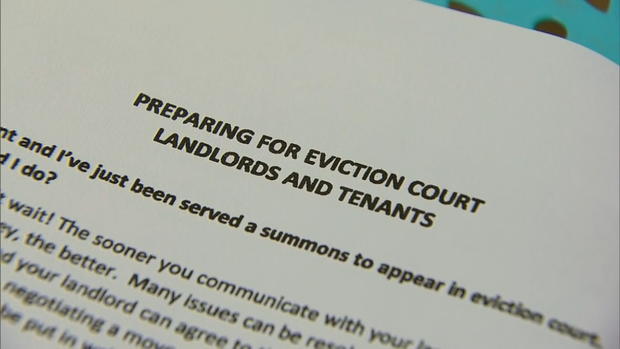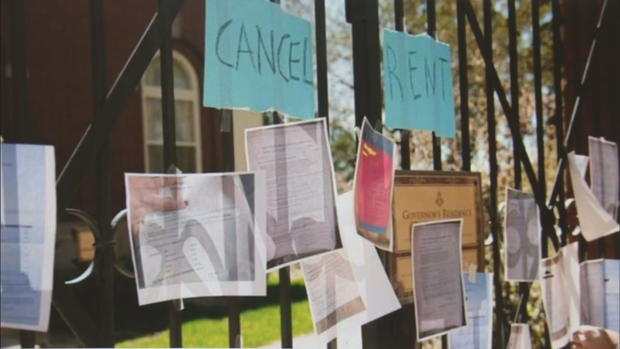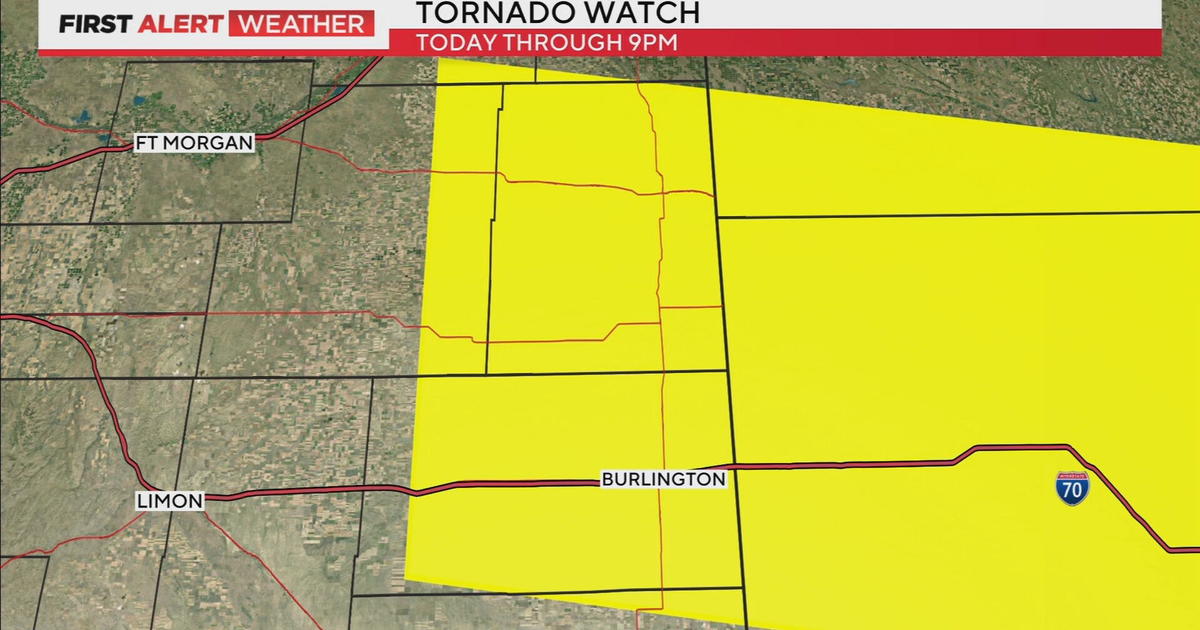Evictions Resume In Denver Amid Rise In Unemployment, Coronavirus Pandemic
DENVER (CBS4)- Colorado's temporary ban on evictions has expired. Denver Sheriff Department deputies have the authority to remove tenants from their homes for the first time since April 30, but the backlog doesn't reflect months of eviction dormancy.
The COVID-19 Defense Project estimates between 300,000-400,000 Coloradans will become homeless as the moratorium on evictions ends in the state. However, the Denver Sheriff Department started out the month of July with zero evictions.
"Anything prior to July 1, we did not execute. We anticipate a large influx, but that has not surfaced," said Maj. Lancefard Alexander with Denver Sheriff Department.
Tenants at risk of losing their homes taped their eviction notices to the Governor's Mansion gate in April. Now, those notices are no longer valid.
"We have had to cancel those since they were valid for only 45 days," explained Alexander.
According to the Denver Sheriff Department, landlords have to go back to court and request another writ of restitution to proceed with the eviction process.
Since July 1, the Denver Sheriff Department has received 139 orders from the court for eviction. About 65 have been carried out so far. Deputies says it's a tough task during even tougher times.
"The people who are being evicted are going through a crisis. Deputies show up on scene, they talk to them, they offer resources. They try to be as professional as they can to be sure they're still being treated with dignity and respect," said Alexander.
Since the pandemic, Alexander says there's more help available through the City of Denver for people who are being evicted. Deputies educate tenants being evicted about those resources.
Under Governor Polis' executive order:
- Landlords must provide tenants with thirty (30) days' notice of any default for non-payment before initiating or filing action for forcible entry and detainer. Such 30-day notice may extend beyond the expiration of this Executive Order. During this thirty (30) day period, tenants shall have the opportunity to cure any default for nonpayment.






